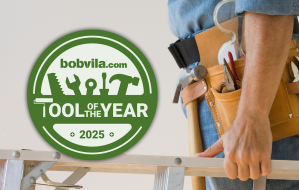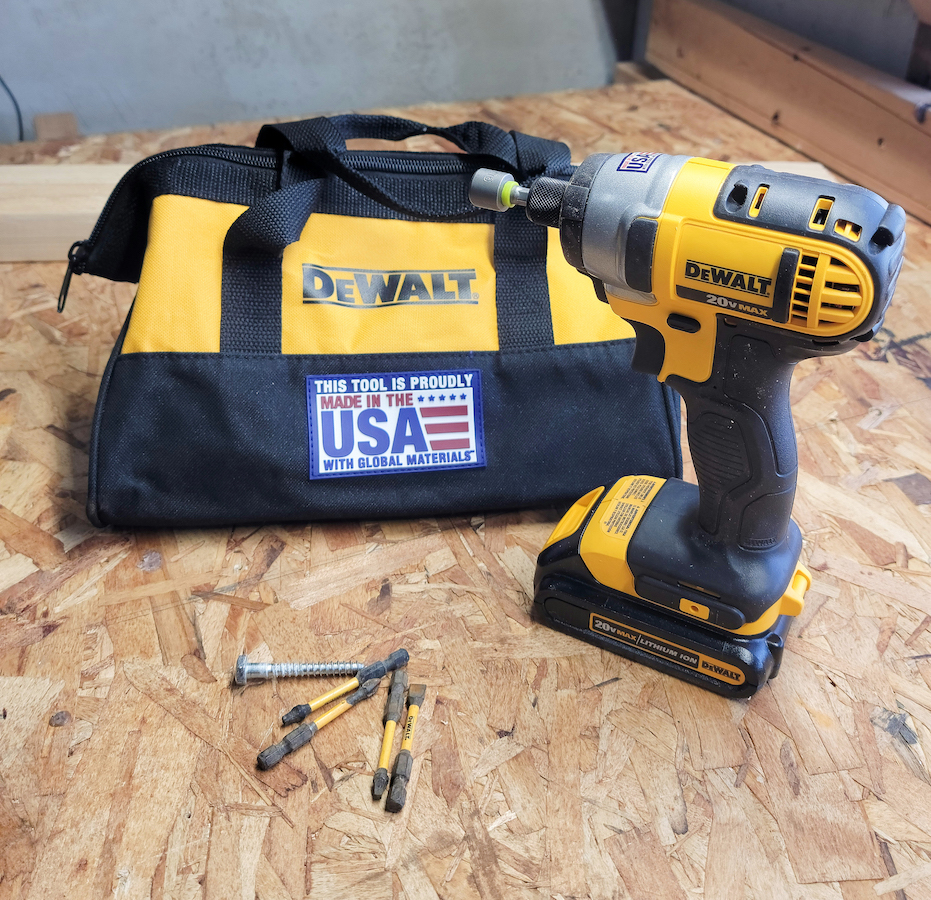

We may earn revenue from the products available on this page and participate in affiliate programs. Learn More ›
Whether you’re a rookie handyman or a seasoned do-it-yourselfer, everyone needs some basic gear to complete around-the-house tasks. If you haven’t had to repair holes in drywall, assemble furniture, or sand your deck yet, don’t worry—your day will soon come. Here are the tools that will help you cut, connect, repair, and measure the things that need to be done around the house.
1. DeWalt DCD771C2 20V MAX Compact Drill/Driver Kit
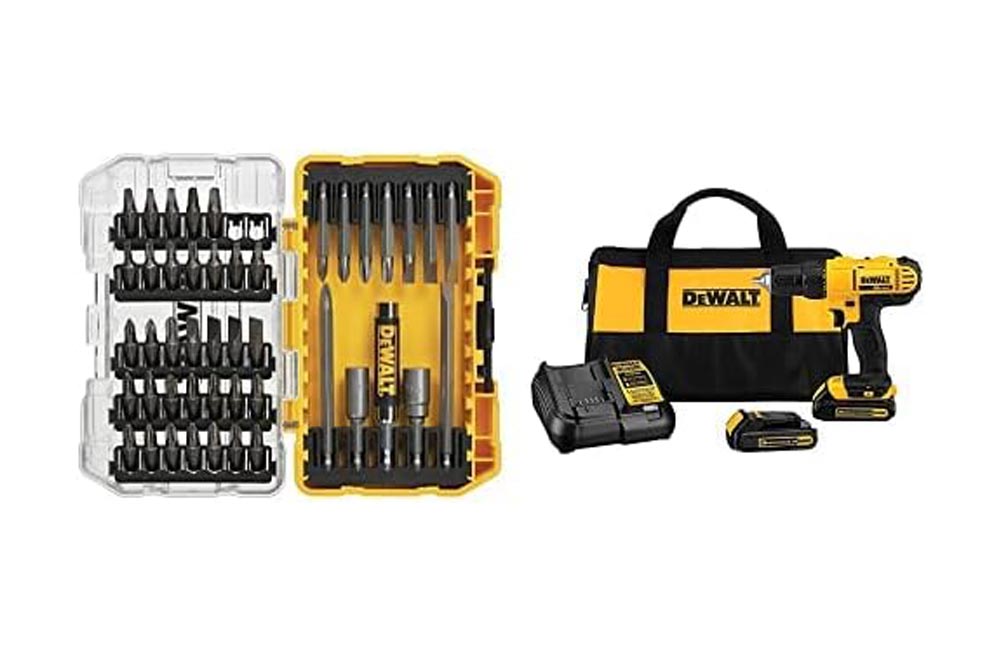
A cordless drill is a must-have for any home, whether for assembling flat-pack furniture or tackling major renovation projects. We’ve tested and reviewed several excellent drills for our best cordless drills guide. Our choice for best overall is the DeWalt DCD771C2 20V MAX Compact Drill/Driver Kit. It offers ample accessories and excellent performance; in our testing, it drilled smoothly into a tree stump.
Get the DeWalt DCD771C2 20V MAX Compact Drill/Driver Kit at Amazon for $118.83
2. Mr. Pen Combination Square
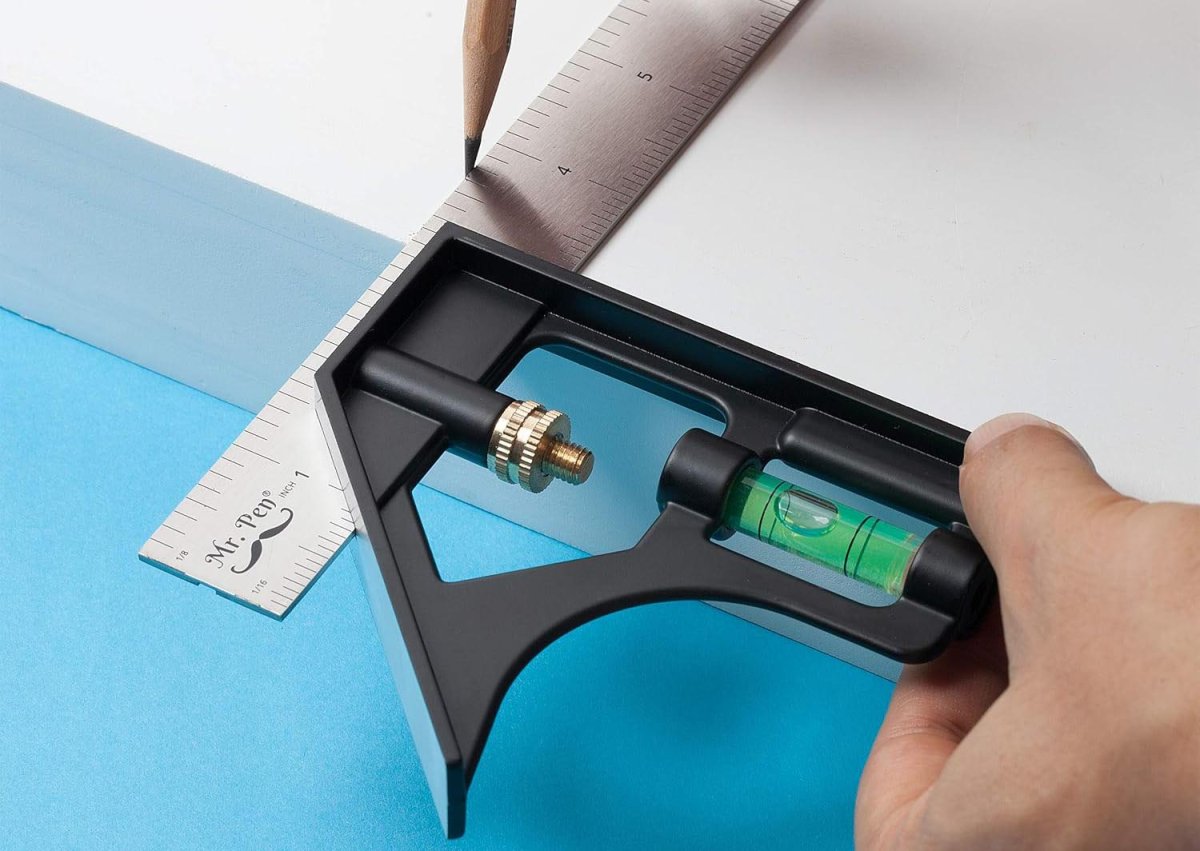
The Mr. Pen Combination Square won honors as our top budget-friendly pick in our best combination square guide. This adjustable tool consists of a 12-inch rigid steel ruler as well as a headpiece that slides along its length. The headpiece has both a 90-degree edge and one that forms a 45-degree angle with respect to the ruler. It’s ideal for marking (and checking) both 90-degree crosscuts and miter cuts. A bubble level in its handle also makes the combination square useful for leveling.
Get the Mr. Pen Combination Square at Amazon for $8.95
3. Makita XSH06PT 36V Brushless 7¼” Circular Saw Kit
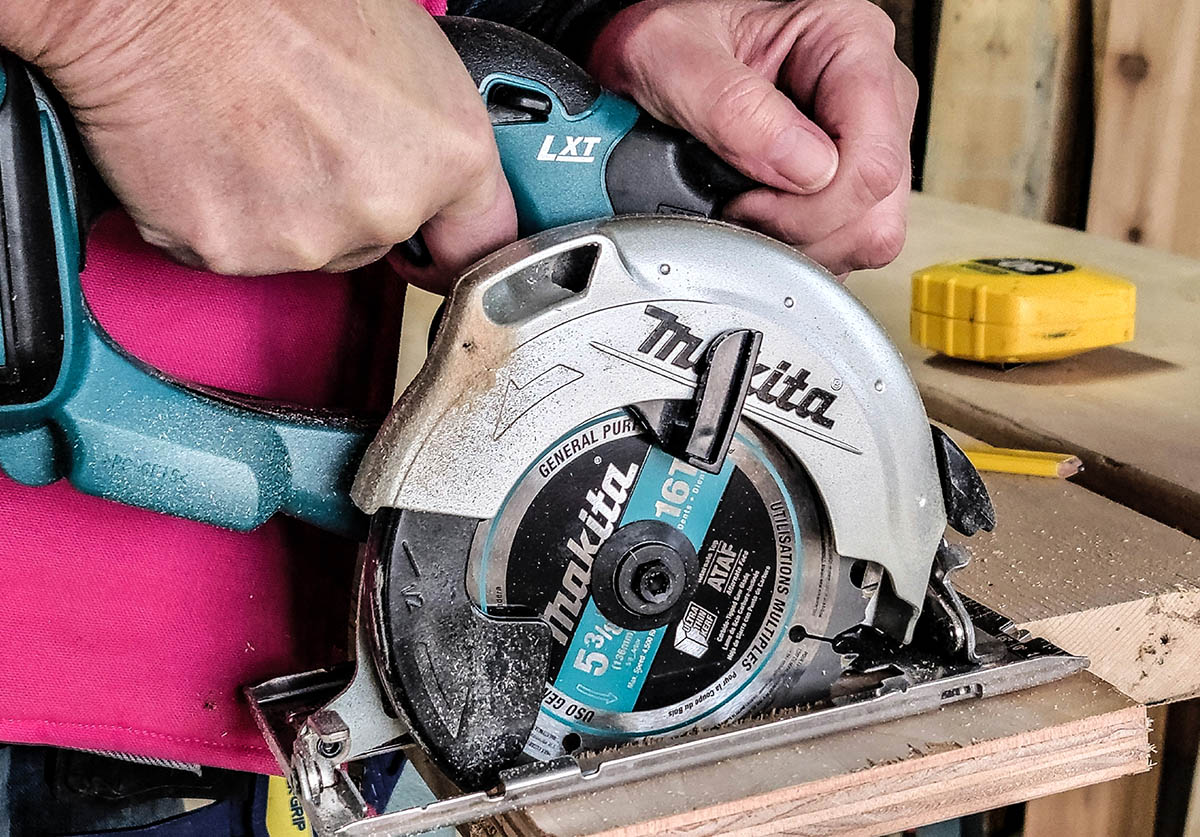
If you work with wood frequently, a hand saw won’t cut it for long—manual sawing simply takes too much effort. If you’re looking to upgrade to a circular saw, the Makita XSH06PT 36V Brushless 7¼” Circular Saw Kit is our recommended pick. Tested for our best circular saw guide, it is powerful (rivaling many corded saws), durable, and user-friendly.
Read our full review: Makita XSH06PT 36V Brushless 7¼” Circular Saw Kit
Get the Makita XSH06PT 36V 7¼” Circular Saw Kit at Amazon for $351.24
4. Arrow T50 Heavy-Duty Staple Gun
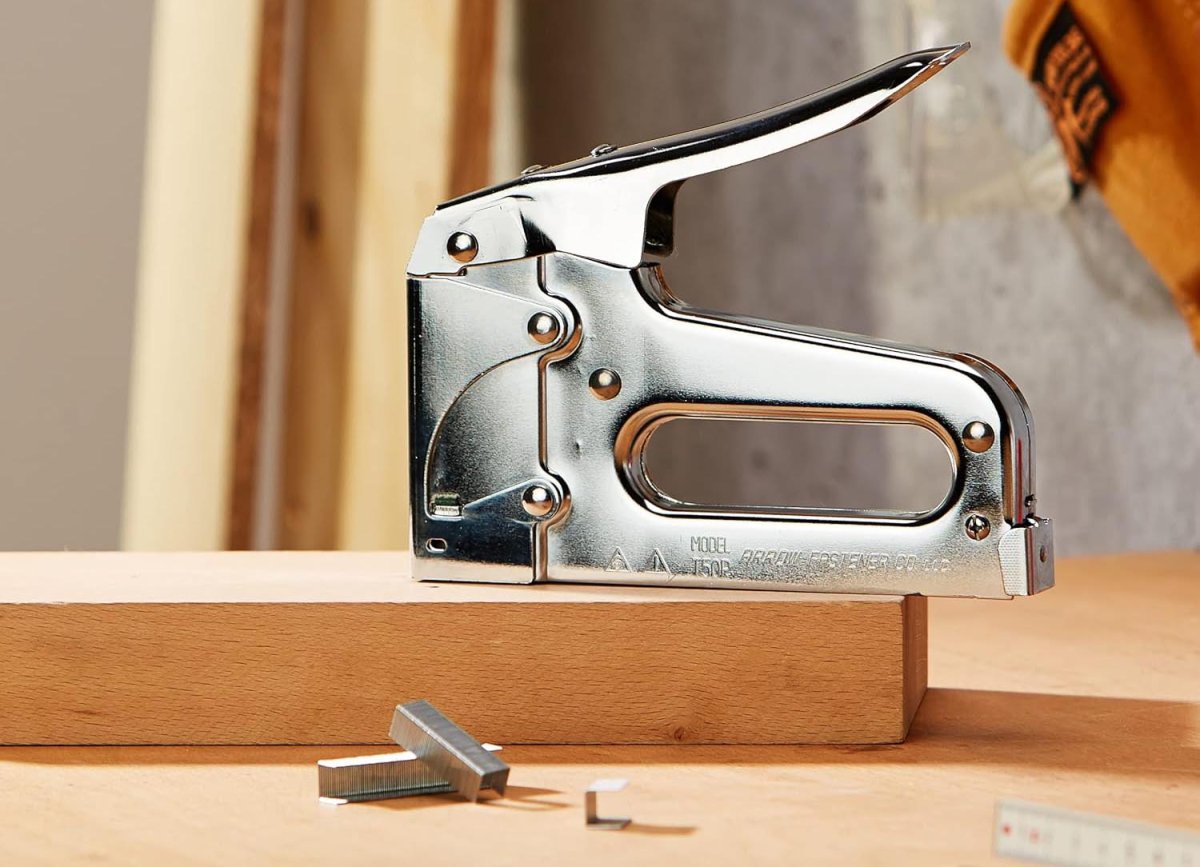
A staple gun can be used to fasten all kinds of materials in home construction and maintenance work. Roofing contractors, insulation installers, and carpenters—as well as homeowners and hobbyists—find a multitude of uses for staplers every day. Offering the best bang for the buck of all the models we tested in our staple gun testing, the Arrow T50 Heavy-Duty Staple Gun is affordable, made entirely of sturdy steel, and shoots T50 staples. It’s suitable for most DIY use, but for seriously heavy-duty jobs, there are also more powerful picks in our guide.
Get the Arrow T50 Heavy-Duty Staple Gun at Amazon for $19.44
5. WorkPro Pliers Set

Solid pliers are indispensable for jobs around the house, and the WorkPro Pliers Set provides seven pairs to tackle all sorts of tasks, big and small. This set includes a groove joint plier, linesman plier, diagonal plier, two slip joint pliers, and two long nose pliers. It has tens of thousands of positive reviews and comes at a very reasonable price.
Get the WorkPro Pliers Set at Amazon for $19.99
6. Ridgid 12-Gallon 5.0 Peak HP NXT Wet/Dry Shop Vacuum

The best shop vacs make cleaning up after DIY tasks easy, and our favorite tested pick was the Ridgid 12-Gallon 5.0 Peak HP NXT Wet/Dry Shop Vacuum. Its powerful 5 hp (horsepower) motor, spacious 12-gallon capacity, and various accessory attachments culminate in excellent value for the price. Suitable for wet and dry messes, it’s a reliable powerhouse to keep in a garage or workshop.
Get the Ridgid 12-Gallon 5.0 Peak HP NXT Wet/Dry Shop Vacuum at The Home Depot for $99.98
7. Milwaukee M18 Fuel Sawzall Reciprocating Saw Kit

A reciprocating saw is the tool of choice for DIY demolitions, so if you’re facing a big renovation project, it will simplify this initial task. We tested various models to find the best reciprocating saws and found the Milwaukee M18 Fuel Sawzall Reciprocating Saw Kit to be our favorite. It’s on the pricey side, but it cut through a 2×4, plastic pipe, and metal stud cleanly (it was the only one that cut through the metal stud without issue), and it felt much smoother than the other saws we tested.
Get the Milwaukee M18 Fuel Sawzall Reciprocating Saw Kit at Ace Hardware for $329
8. Makita Cordless 5″ Random Orbit Sander

A random orbit sander is another tool to add to your arsenal if you frequently DIY with wood. The Makita Cordless 5″ Random Orbit Sander was our favorite of all the models we tested for our best random orbital sander guide. It was the smoothest-operating sander we tested. Adjusting the speed was easy once we got the hang of it, and it had an effective removable dust bag.
Get the Makita Cordless 5″ Random Orbit Sander at Amazon for $111.27
9. Stabila Pro Set
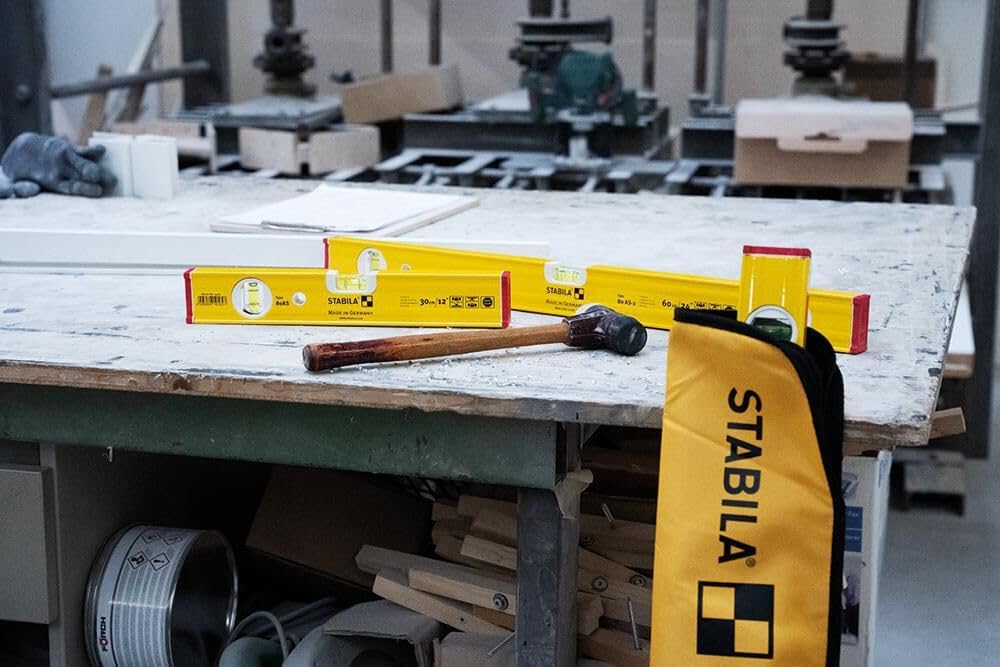
With the help of one of the best levels, you can be sure to install stuff straight the first time. The Stabila Pro Set is our recommended product of choice (it’s a set), with three levels in commonly-used lengths: 12, 24, and 48 inches long. Rubber end caps help the level stay in place on a surface, and a carrying case is included to store the set when the job is done.
What our tester says: “I like that this kit includes the three sizes that I always use. They felt more maneuverable than the other levels because the proportions were different. The two long levelers were narrower and lighter than average, but the short one was chunkier and a bit longer than the torpedo level.”—Mark Wolfe, Product Reviews tester and writer
Get the Stabila Pro Set at Amazon for $137.80
10. DeWalt DW089K 3-Beam Line Laser Level

For some jobs, a laser level is a better pick than a spirit level. If you want to make the upgrade, we recommend the DeWalt DW089K 3-Beam Line Laser Level, which was our top pick in our best laser level guide. In hands-on testing, we found it accurate (it will measure to within ⅛ of an inch from 30 feet) as well as user-friendly—it’s perfectly suitable for beginner users. It was also sturdy, handling a drop test well.
Get the DeWalt DW089K 3-Beam Line Laser Level at Amazon for $325.99
11. WEN 10236F2 Quick-Adjust 36-Inch Steel Bar Clamps
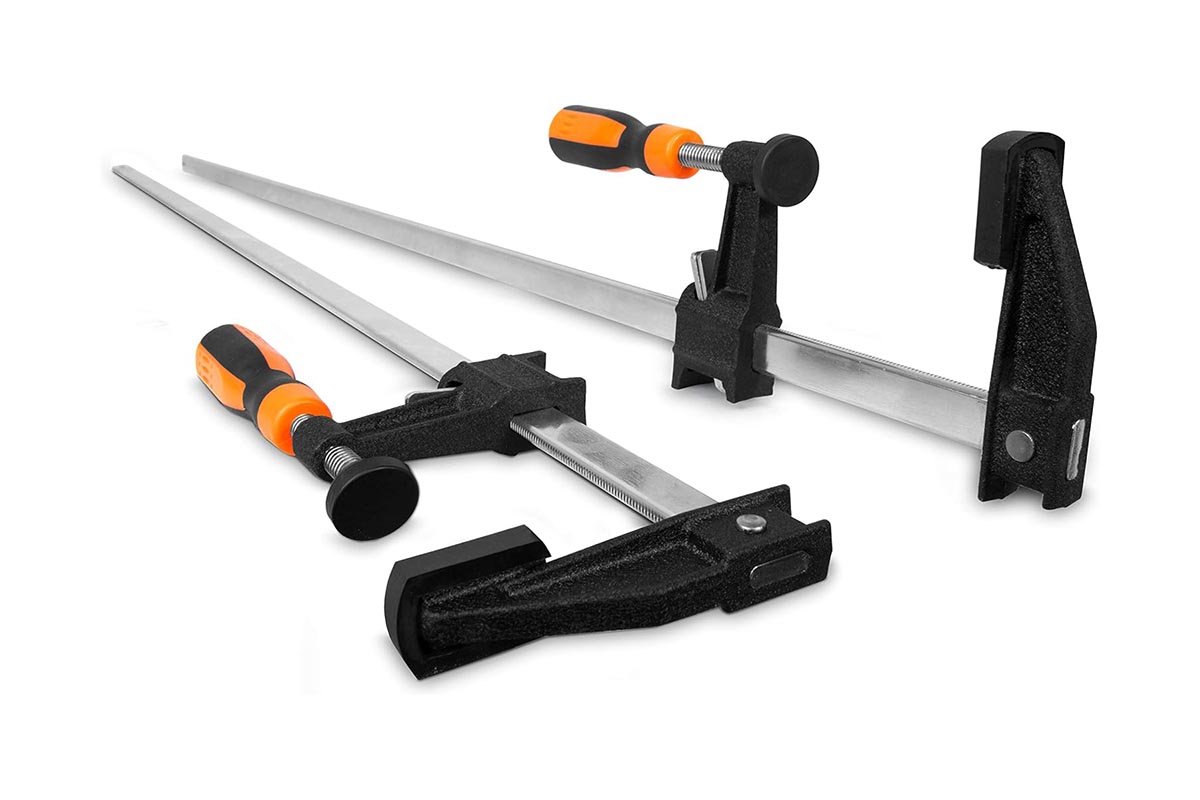
The best woodworking clamps are useful for holding pieces together while you wait for glue to set. Excellent for larger projects, the WEN 10236F2 Quick-Adjust 36-Inch Steel Bar Clamps have a 36-inch long rail to fit just about any planks or blocks. Non-marring clamp heads and a quick-adjust feature ensure no damage and make the clamps really easy to use.
Get the WEN 10236F2 Quick-Adjust 36-Inch Steel Bar Clamps at Amazon for $27.07
12. Gorilla 22-Foot MPXA Multi-Position Aluminum Ladder
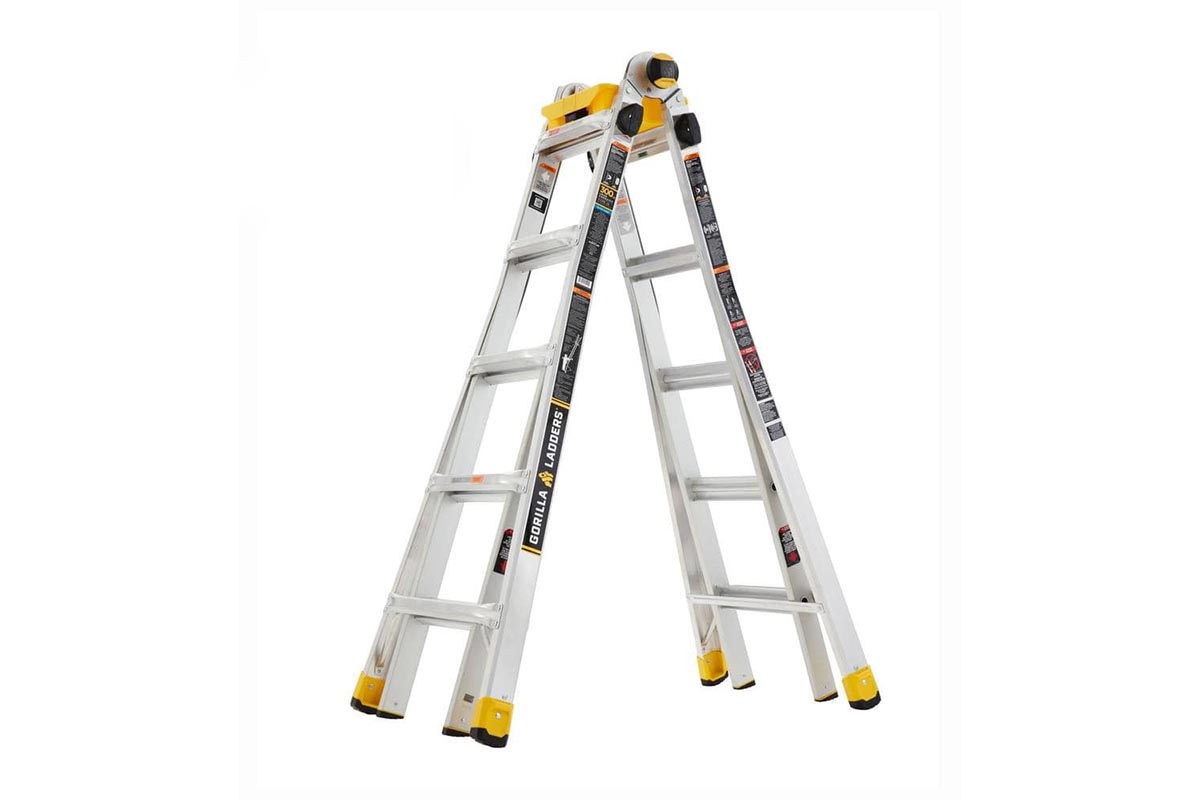
At some point during your DIY projects, you’ll probably need to reach up high, and the Gorilla 22-Foot MPXA Multi-Position Ladder can give you an extra boost in height. It holds up to 300 pounds, has a maximum reach of 22 feet, and can be used in various configurations, including as an extension ladder, step ladder, and stairway step ladder. It’s stable and easy to use, too, which is why it took the top spot after testing in our best ladders guide.
Read our full review: Gorilla 22-Foot MPXA Multi-Position Aluminum Ladder
Get the Gorilla 22-Foot MPXA Multi-Position Aluminum Ladder at The Home Depot for $239
13. Swanson Tool S0101 7-inch Speed Square
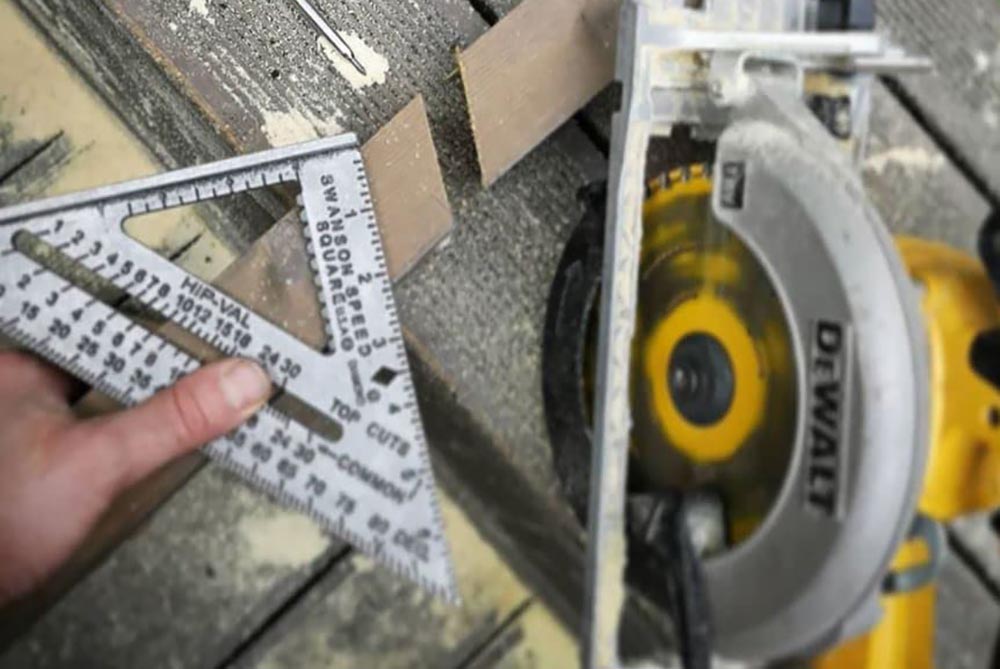
Reliable and easy to grab, a speed square is the right-angle tool of choice for many professionals. If you’re considering getting one for home projects, we recommend the Swanson Tool S0101 7-inch Speed Square, which won top honors in our best speed square guide. This tool was first developed by the Swanson company founder in 1925, so they’ve had a century to perfect the tool. Made of a heavy-duty aluminum alloy, this one should last you a long time.
Get the Swanson Tool S0101 7-inch Speed Square at Amazon for $9.98
14. Klein Tools 70550 Hex Wrench Key Set
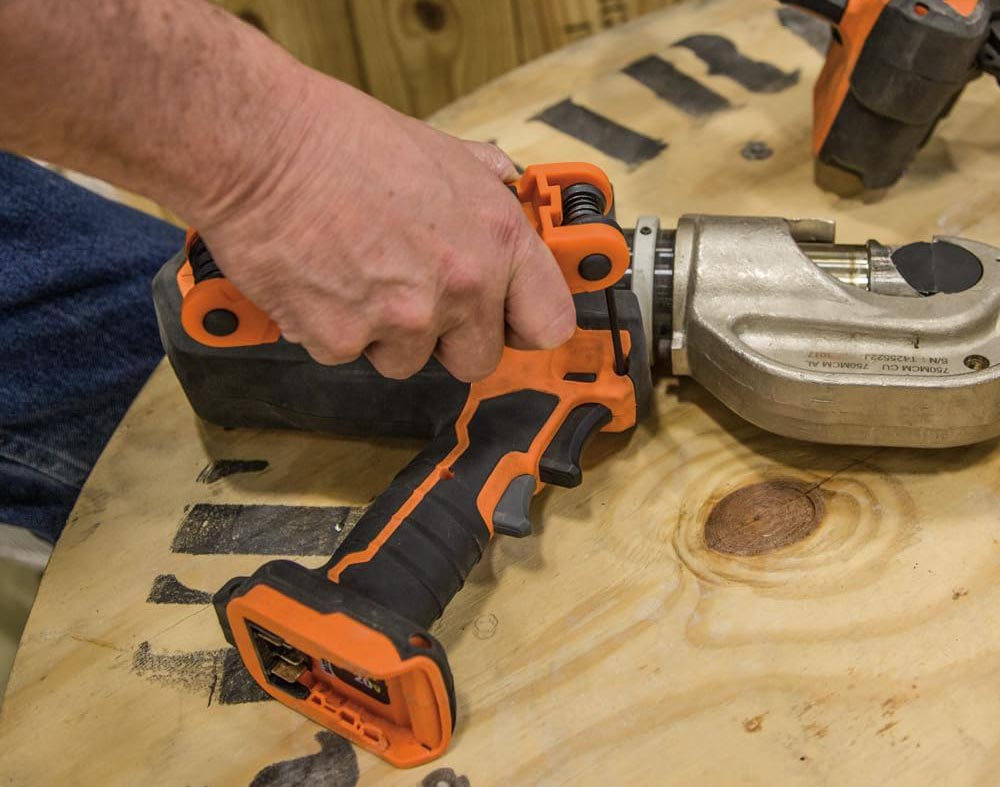
Hex keys are familiar tools to anyone who has bought furniture from IKEA. Though you might have a few throwaway hex keys with which you’ve assembled flat-packed furniture, it’s a good idea to have a quality set in your toolbox. The Klein Tools 70550 Hex Wrench Key Set has a comfortable grip that keeps the 11 included hex keys of various sizes together, rather than loose and easily lost in your junk drawer.
Get the Klein Tools 70550 Hex Wrench Key Set at Amazon for $19.97
15. Warner 90133 ProGrip Full Flex Putty Knife
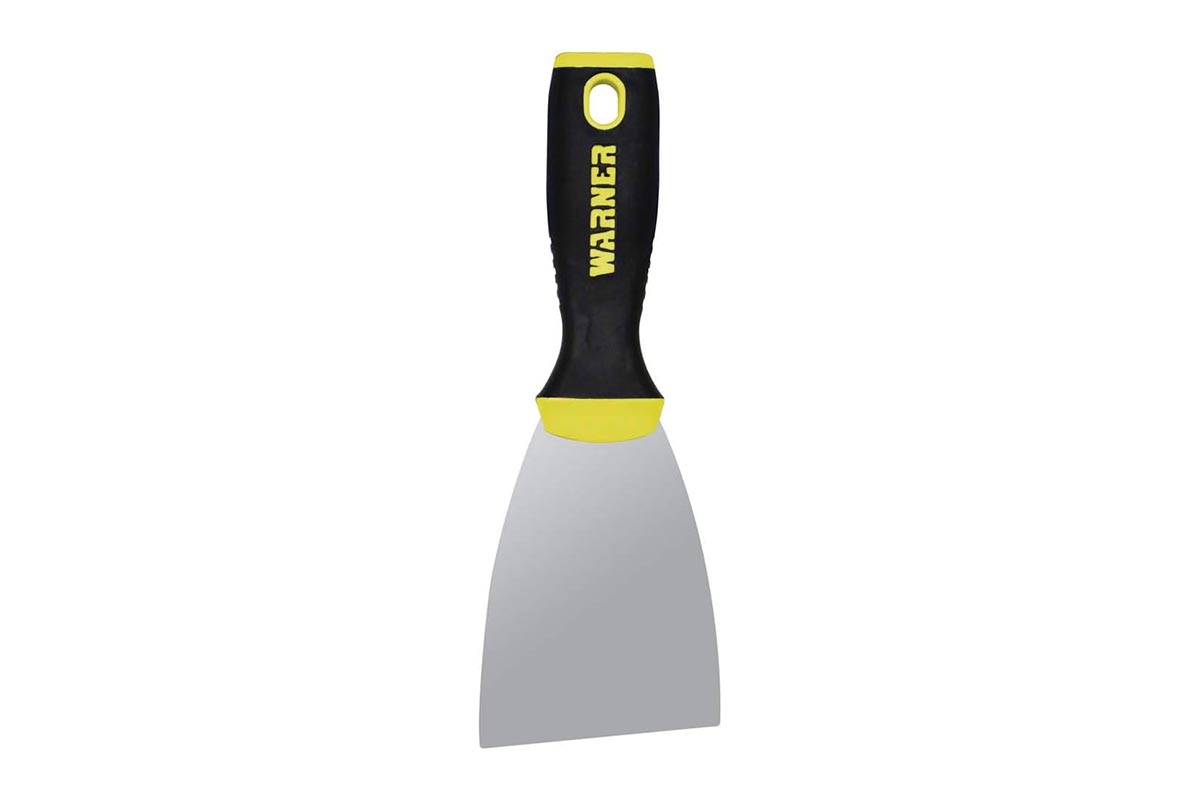
A putty knife is the go-to tool for making simple drywall repairs, spackling nail holes, and scraping old wallpaper out of tight spaces. The Warner 90133 ProGrip Full Flex Putty Knife is a highly rated option that can help with these jobs and more. It has a flexible blade for better maneuverability, and the blade has a full tang, too, so it’s extra durable.
Get the Warner 90133 ProGrip Full Flex Putty Knife at Amazon for $6.20
16. Zircon MultiScanner A200 Stud Finder
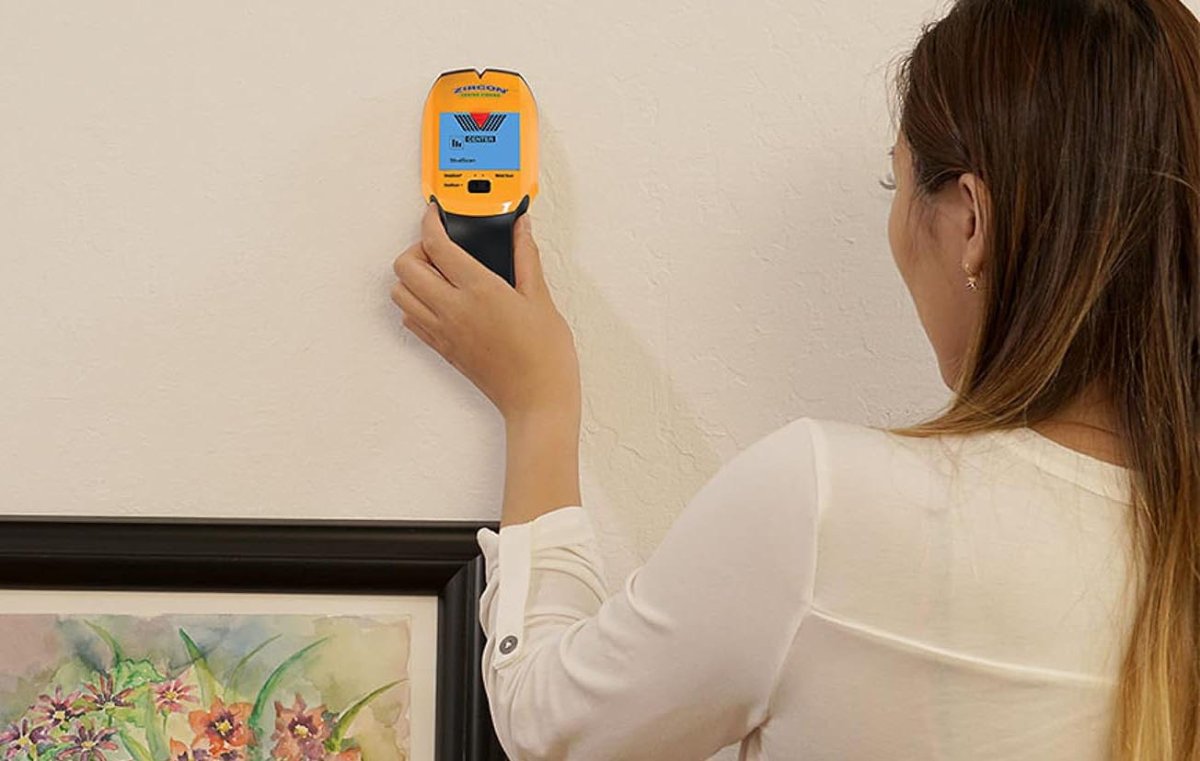
A stud finder like the Zircon MultiScanner A200 Stud Finder helps locate 2×4 wall studs behind drywall so that you can securely anchor heavy items like mirrors, bathroom towel bars, TVs, and shelves. We tested this model for our guide to the best stud finders and chose it as the best overall pick, largely thanks to its precision (it’s capable of detecting wood studs to 1/16 of an inch). It’s easy to use, and it can detect metal studs, too.
Get the Zircon MultiScanner A200 Stud Finder at Amazon for $48.99
17. Gerber Gear EAB Lite Pocket Knife
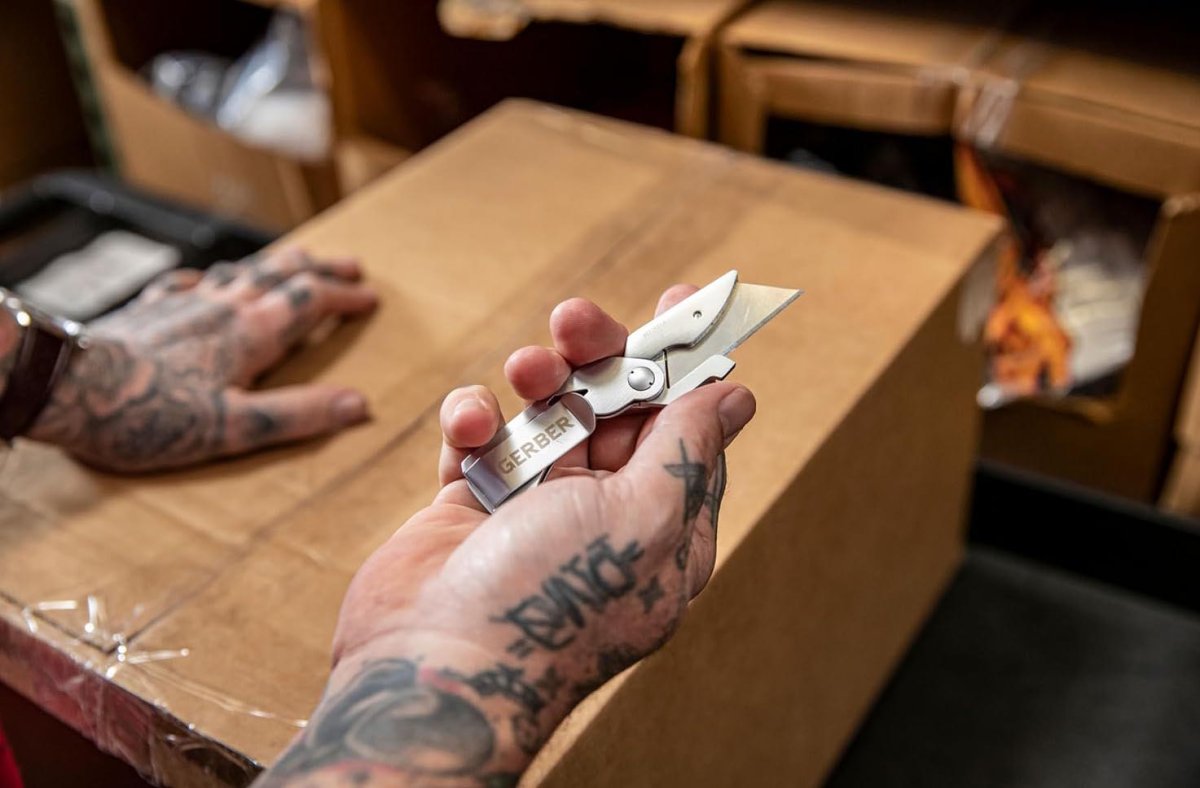
Utility knives are good for far more than opening cardboard boxes—they can slice through rope, drywall, plastic, roofing shingles, rubber, linoleum, wallpaper, and other materials. There are plenty of great options out there, but we recommend the Gerber Gear EAB Lite Pocket Knife. When we tested it for our guide to the best utility knives, it slid through materials smoothly without the blade wiggling, and it felt comfortable in hand.
Get the Gerber Gear EAB Lite Pocket Knife at Amazon for $11.88
18. Crescent 6″ Adjustable Black Oxide Wrench
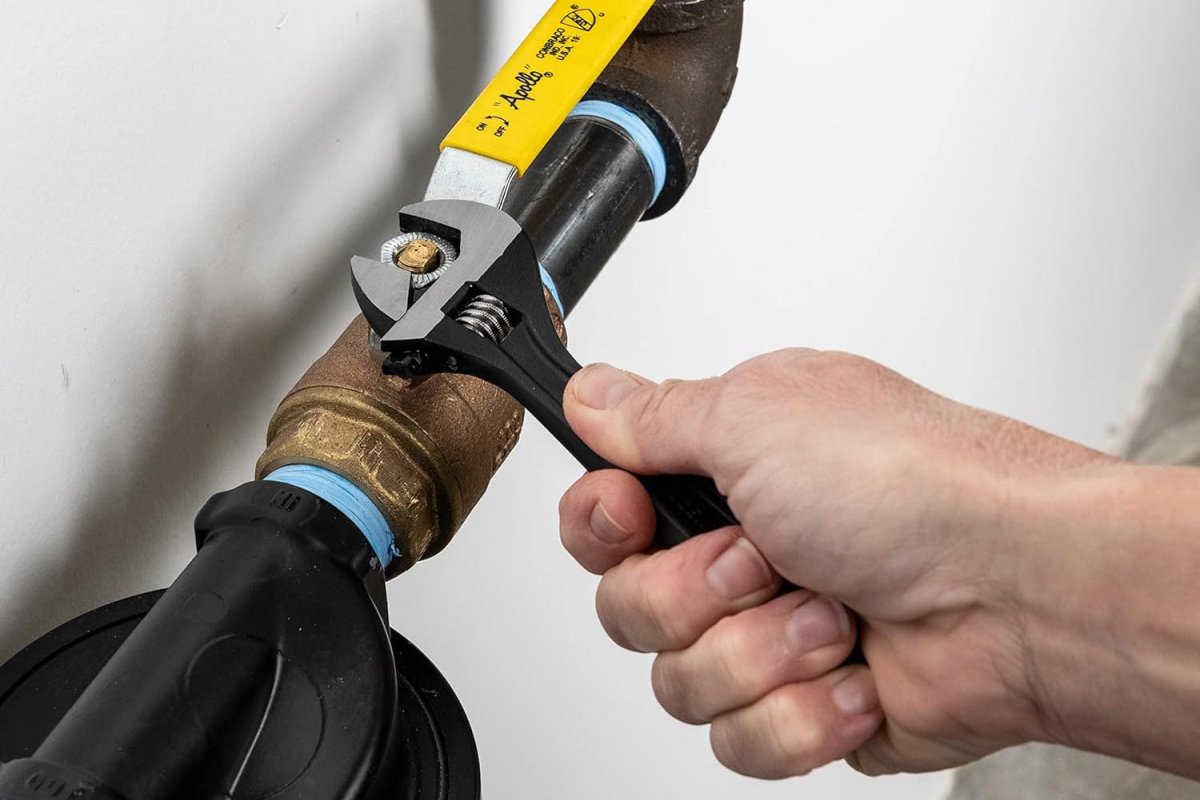
Great for gripping, turning, and tightening, a quality wrench is a key component in every toolbox. The Crescent 6″ Adjustable Black Oxide Wrench is a very well-rated option you can count on to get the job done. Made of strong alloy steel with a black oxide finish that resists corrosion, it’s available in several sizes (from 4 to 12 inches long), so you can get one that suits your upcoming DIY projects.
Get the Crescent 6″ Adjustable Black Oxide Wrench at Amazon for $15.95
19. 3M Virtua CCS Protective Eyewear

Though they don’t measure, cut, or grip, safety glasses protect your most precious tools: your eyes. We tested several products to find the best safety glasses on the market, and the 3M Virtua CCS Protective Eyewear was our favorite pair. Made by the reliable gear brand 3M, they’re lightweight, comfortable, and very protective. They boast an ANSI Z87.1 impact rating, UVA and UVB protection, and a foam gasket that helps block fine debris like dust.
What our tester says: “The 3M Virtua glasses were very lightweight and comfortable, but the big revelation was the removable gasket. Without it, I was still getting sawdust in my eyes. But with it in place, no debris got through between the lens and my cheek.”—Mark Wolfe, Product Reviews tester and writer
Get the 3M Virtua CCS Protective Eyewear at Amazon for $10
20. Bosch StarlockPlus Oscillating Multi-Tool Kit

Oscillating tools are also known as multi-tools, a suitable namesake when you consider just how many tasks they can help accomplish. We tested the Bosch StarlockPlus Oscillating Multi-Tool Kit for our best oscillating tool guide and labeled it a top performer. Its speed is adjustable, so you can change it according to the material at hand, as we did while cutting through sheet metal and wood smoothly during our tests. A case and several useful accessories are included, too.
Read our full review: Bosch StarlockPlus Oscillating Multi-Tool Kit
Get the Bosch StarlockPlus Oscillating Multi-Tool Kit at Amazon for $86.70
